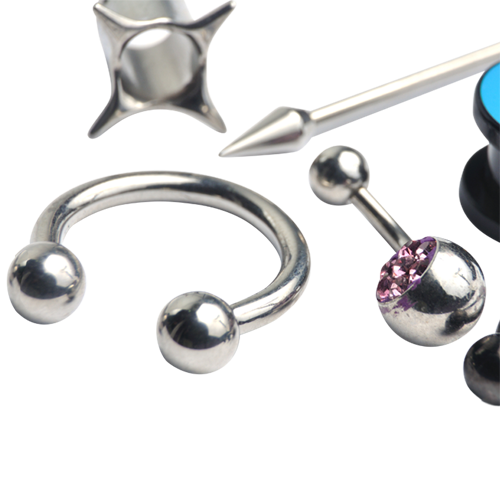A tattoo or a piercing can be the source of potentially serious health issues. Therefore, it’s important to be aware of the risks and know how to care for them.
Getting a piercing or a tattoo
A body piercing consists of piercing a hole with a needle to insert a jewel, which prevents it from closing. A tattoo, on the other hand, consists of marking the skin with a drawing or an inscription using a needle and dye. This technique is also used for permanent makeup.
In both cases, it is necessary to introduce a needle into the skin, which creates an entry point for infection. The risks may differ depending on where on the body the technique is done, but they should be considered. For example, the mouth contains large amounts of bacteria and the risk of infection and complications with piercings are common in that area. Additionally, some techniques can affect dental and gum health (a jewel in the mouth can break teeth, gums or involve a risk of choking). Therefore, it is advisable to meet with a dentist to discuss this before proceeding with an oral piercing.
The risk of infection
The needles used for a piercing or a tattoo can be contaminated if they have been in contact with the blood of a person infected with a virus, such as the human immunodeficiency virus (HIV; causing AIDS) or hepatitis B or C. Bacteria that are innocuously present on the skin or in one area of the body can also cause serious infections when they are transferred elsewhere into the body through a wound.
Sometimes the infection can spread only to the skin surrounding the piercing or tattoo, but it can also cover the entire part of the body where it is located or, in some rare cases, the entire body. Complications from an infection are unpredictable and can even be permanent or lead to death. It is necessary to take the time to get informed and to carefully choose the person who will do the tattoo or the piercing to limit the risk of infection. Additionally, by following a few tips, you can limit the risk of infecting the tattoo or piercing. Don’t hesitate to consult your pharmacist to obtain advice relating to these practices.
Other complications
Other possible complications of a piercing or a tattoo include:
- pain
- trauma to the skin
- bleeding
- allergies to the material that the piece of jewelry is made of or to the product used to disinfect, clean, or to do the tattoo
- keloid (excessive scarring)
A few tips
Here are some tips to reduce the risk of contamination, infection and other complications.
Carefully choose the business and the person who will do your piercing or tattoo.
- Ensure that the person:
- cleans their hands properly with soap and water before starting work, and wipes them with a clean cloth
- uses a proper disinfection technique on the area of the body that will receive the tattoo or piercing
- uses new, disposable or properly sterilized equipment
- Don't make a hasty decision. You will probably have your piercing or tattoo for a long time, so there is no need to rush.
- Do not get a piercing or tattoo, or seek medical advice if:
- you are pregnant
- you are in a condition that affects your judgment (under the influence of alcohol, drugs or in emotional or psychological distress)
- you have a chronic illness or take medication on a regular basis (certain medications or health problems may put you at greater risk of infection)
- Keep the skin very clean after the procedure and follow the instructions to prevent infection (wash your hands, try not to touch the area as much as possible except to provide the necessary care).
- Ask your pharmacist for advice before applying a disinfectant or other product.
- See a doctor promptly if you notice or feel the following:
- swelling, intense redness or feeling of heat in the area around the piercing
- oozing or pus
- unpleasant odour
- fever or shivering
- general malaise
- any unexpected symptom
Speak to your pharmacist if you have any questions about how to care for your piercing or tattoo, what cleansing product to use, what medication to use to reduce pain, or about the prevention or treatment of infections. Your pharmacist can provide adequate information so your piercing or tattoo experience is as satisfying as possible!

